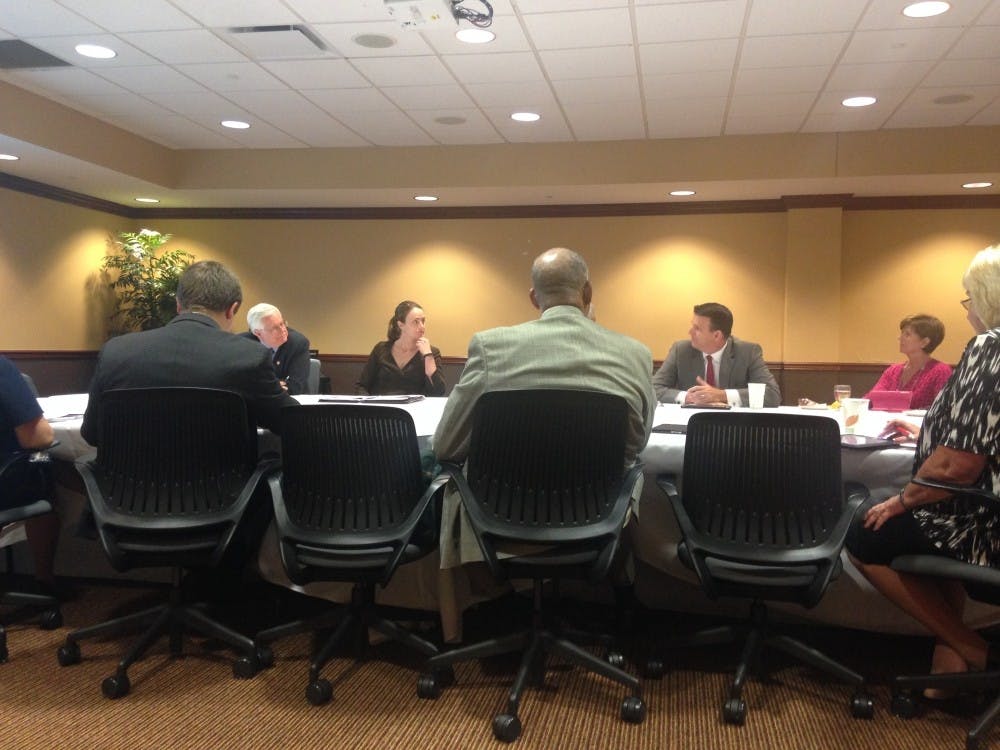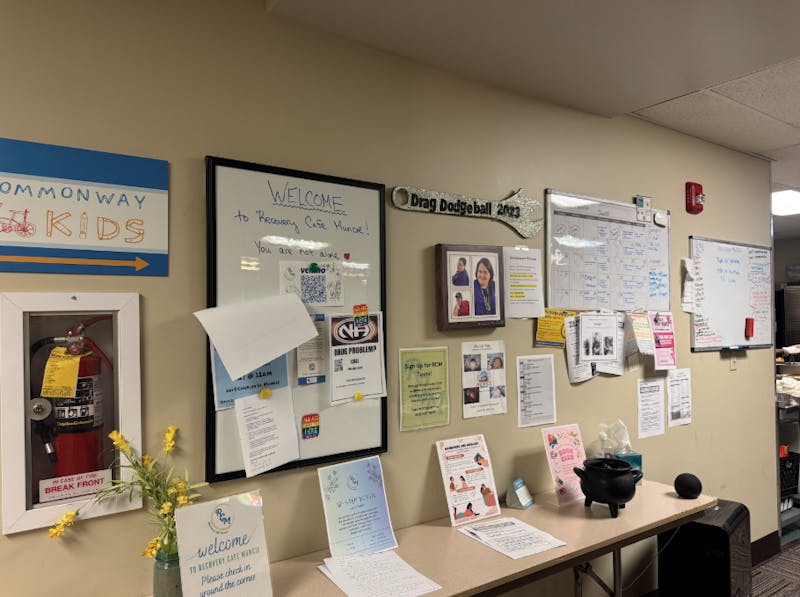The university’s Board of Trustees held its end-of-semester meetings on Dec. 18, covering topics ranging from this year’s Campus Fire and Safety Report to a 12 percent increase in applications to Ball State from this time last year.
Here is a selection of topics covered and programs approved by the university’s highest governing body:
Room and board rates
Ball State’s on-campus housing cost will rise 2.9 percent next year, said Bernie Hannon, vice president for business affairs. That means a student living on campus in a double room in LaFollette Complex with a plan for 21 meals per week will pay $10,541 for the 2016-17 academic year.
Fire and safety report
Ball State’s crime numbers remained relatively consistent in 2014 compared with past years — with the exception of drug abuse arrests. 2014 saw a drop in drug abuse arrests by nearly 40 percent since 2013, while discipline referrals for the same crime jumped nearly 10 times.
Kay Bales, vice president for student affairs, said this disparity was the result of the university’s decision to issue disciplinary referrals to students found with small amounts of drugs as opposed to arresting them.
“This is a part of our focus on community policing,” she said. “I think students are seeing police in a very different way.”
Phased retirement
Provost Terry King discussed the university’s relatively new program of offering professors and other faculty the chance to phase into retirement rather than abruptly stopping work. The program, which has been in effect for four years, allows emeritus faculty members to drop down to half-time for up to three years, then fully retire.
Of the 87 people who have retired since the program was enacted, 14 have gone through the program, with five of those choosing to accelerate through the program.
Campus and faculty diversity
The university has taken several steps over the past year to focus on increasing diversity awareness, Bales said. She reported several strides the university has made over the past decade, including a 19 percent increase of underrepresented minorities at the university.
The university has hired an affirmative action specialist whose job it is to ensure the university is assessing and hiring members of underrepresented minorities for positions when they are the best fit for the job. They also have created an online application for faculty that Bales said would help to attract more candidates who are part of underrepresented minorities.
The biggest obstacle, Bales said, was that many students and faculty weren’t aware of the programs offered to enhance diversity.
“We did find that some things have already happened on campus, so our charge is to educate people on the things that are already happening,” she said.
President Paul W. Ferguson touted the university’s commitment to holding dialogues and programs focused on diversity as a reason students have remained content with the university in the light of national anger and unrest based around issues of racial bias and prejudices.
“The integrated, comprehensive approach to focus on [diversity] has really born the fruit of peace on campus during this difficult time for the nation,” Ferguson said.
Admissions
Ball State’s number of applications from prospective students is up 12 percent from where it was this time last year, according to Interim Vice President for strategic communications Julie Hopwood. The number of students accepting admission to the university is also up 21 percent this year.
More than 2,400 prospective students have visited campus this year.
Hopwood said the university’s creation of a digital campus tour has been well received by prospective students.





The Daily News welcomes thoughtful discussion on all of our stories, but please keep comments civil and on-topic. Read our full guidelines here.